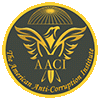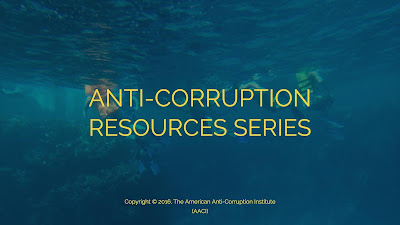Do you know who Ann Twomey is, and what she is alleged to have done? No matter how you feel about unions conceptually, and no matter what you think about the very top union representatives and their true intentions, one thing is for certain: private sector unions are made up of largely hard working, blue color American men and women, who are just trying to do their best to support their families in dignity. Steelworkers in Ohio, auto plant mechanics in Michigan, flight attendants in Illinois, or nurses in New Jersey, they are the backbone of our labor force.
That’s why corruption within a union feels so much worse than any Wall Street-manufactured Ponzi Scheme. Somewhere deep inside we find it harder to cry for some hypothetical fat cat investor that comes to mind, even though in the reality, of course, it’s false and financial fraud often hurts the most vulnerable members of the society.
Yet there is something particularly morally repugnant about schemes and corruption associated with unions. Because, at least on paper, unions are there to serve and protect the interests of hardworking middle-class Americans -- your average Joe the neighbor next door, and Jane the single mom down the block. They faithfully pay their union membership dues and come out to support union activities because they sincerely believe that the union is there for them, and will give them if not prosperity, then at least a sense of financial security. Taking advantage of these people’s goodwill and defrauding them seems like a step out of the boundaries of “usual evil.”
Ann Twomey is the president and a founder of Health Professionals and Allied Employees, New Jersey’s largest health care union and accused of serious wrongdoing. The actual allegations surfaced in a lawsuit filed back in 2014, with new allegations being added in 2015, but the case has resurfaced again now because of the latest round of depositions and the things one can glean from it.
Ann Twomey started HPAE and has been it’s unchallenged leader for the last 30 years. By all accounts, she turned the HPAE into a powerful regional union with her personal influence extended well beyond the Garden State. Listed at one of the 30 Most Influential Women in New Jersey Politics, Twomey’s national ambitions are absolutely transparent. She is a vice president of AFT (American Federation of Teachers), where she serves as vice chair of the AFT Nurses and Health Professionals program and policy council, a member of the AFT human rights and community relations committee; vice president of the New Jersey State AFL-CIO; co-chair of Patients First Coalition in New Jersey; a board member of New Jersey Citizen Action; Board Trustee at the American Labor Museum, and a member of the Advisory Board of the Felician College Nursing Program.
While HPAE is a union for health care professionals, it’s also used as a platform to advance issues that have little or nothing to do with health care itself. The union regularly pushes to abolish the Second Amendment and extends support to politicians promoting gun control. They played a vital role in forcing the New Jersey legislature to advance the $15/hour minimum wage. And just in these past months, HPAE has been involved in the Verizon worker’s strike, as well as the union move to bring down Atlantic City’s Trump Taj Mahal Casino. Union dues and volunteers are being used to pursue her broader political agenda, often bringing no real benefit to the nurses and other health care professionals it’s meant to serve.
And then comes the lawsuit, Fonti v HPAE Retiree Medical Trust. The suit provides a rare opportunity to get a glimpse on the way this surprisingly secretive organization operates. It opens the veil on an organizational culture void of transparency, driven by personal ambition, and with either negligence or, as alleged in the lawsuit, by greed and personal gain.
The new charges allege that Twomey steered $1.4 million in legal fees to her boyfriend, New Jersey attorney Richard Loccke, without properly disclosing the relationship. According to the New York Post, the filing reveals that since 2006, Twomey has “awarded virtually all of the union’s legal work to her live-in boyfriend. The no-bid contracts directly benefit Twomey, who has been dating Loccke for 30 years and resides in his spacious Rutherford, NJ, home, the suit says.”
Most would agree that this is illegal under federal law and that the Department of Labor rules would require Twomey to disclose this conflict of interest. The $1.4 million in legal fees to her boyfriend was spent even though the HPAE already pays for an in-house council.
Court documents also show that HPAE is a defendant in the case, which means that union dollars are being used to defend Twomey’s alleged graft. So much for oversight, transparency, and fiduciary duties to the members.
A closer analysis of the financials available through public records paint an even grimmer picture. For the HPAE Retiree Medical Trust, according to their 2014 990 Disclosure statement. The plan’s revenue is 97.8% from plan participants and 2.2% from employer contributions. 16.7% of the expenses were plan benefit and 83.3% in administrative fees, including plan administration fees, legal and accounting with total assets of $9,970,775 for 5,800 members. These numbers beg the question will there be enough to cover the 5,800 plan members with an average of only $1,719.10 in assets available per member and all of their dependents?
Where is the oversight? Why has Twomey, been the uncontested president for 30 years, why has the union dissipated member funds by directing funds to live in boyfriend(s?), supporting unrelated causes, and giving money to other bodies unrelated to their cause? Is her top deputy and heir-apparent Jeanne Oterson compliant in all of this, and what can members expect from her leadership, given the fact that her husband, Richard Engler, has brought attention to himself by rewarding over $100,000 in sole-source contracts for outside lawyers and consultants without public notice or discussion at the U.S. Chemical Safety and Hazard Investigation Board, which he leads.
Can you imagine an investment pool that awards all legal work to relatives without disclosing the conflict of interest, gives member money to other funds, wastes member money on issues and events that are of zero benefits to the investors, and at the all the time funds management’s selfish quest for awards and adulation of public? I can, and I have, with names such as Magnus Peterson, Raj Rajaratnam, and Bernie Madoff and all end with the perp walk of shame.
L. Burke Files, President
The American Anti-Corruption Institute (AACI)







